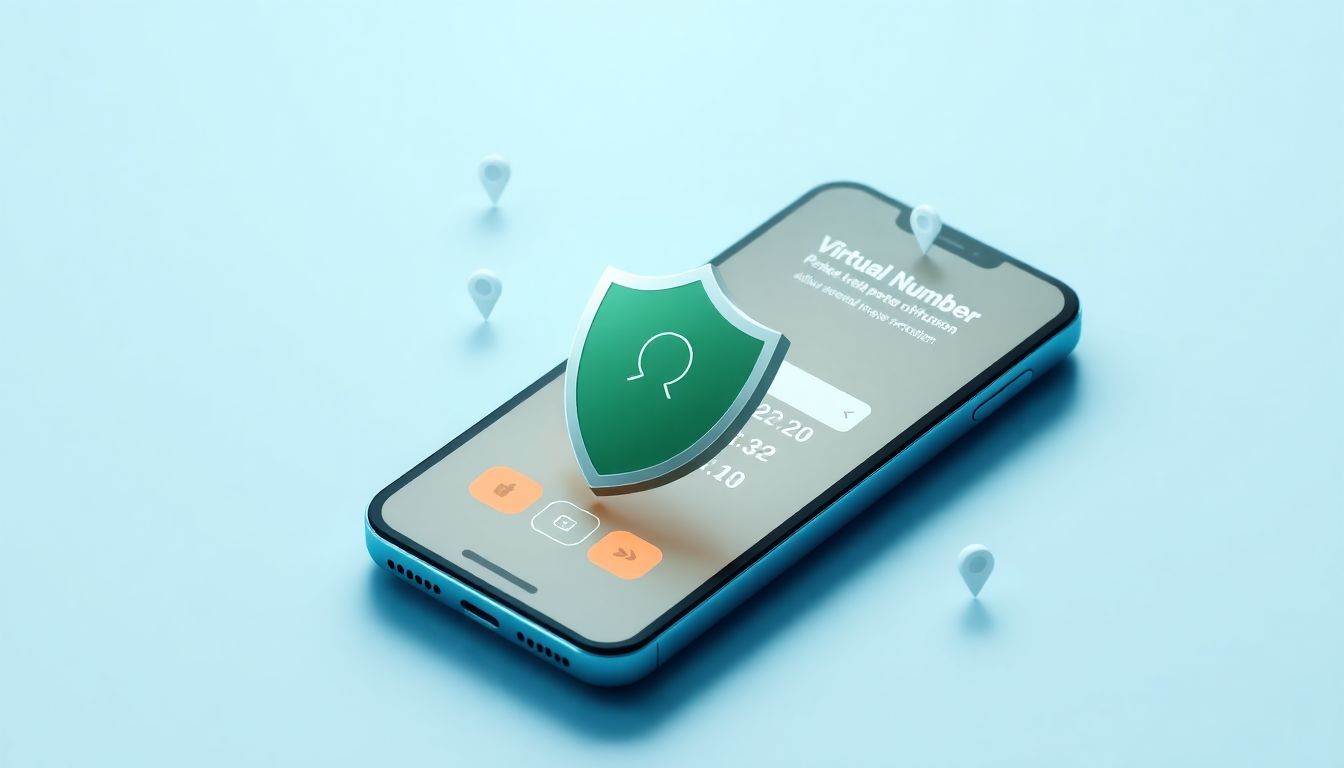
Virtual Phone Numbers: Avoiding Personal Data Exposure
Personal phone numbers have become critical digital identifiers that create significant privacy vulnerabilities across platforms. When exposed, these numbers can trigger cascading privacy breaches throughout your online footprint, compromising multiple accounts simultaneously. Virtual phone numbers establish an essential protective barrier, functioning identically to regular numbers while shielding your personal information from data collectors and potential threats. Whether you’re managing professional accounts or simply protecting your privacy, convenient solutions like SMS-Activate allow full digital participation without compromising personal security.
The problem with personal data exposure
Phone numbers have evolved beyond contact points into universal identifiers that companies use to track and profile users across platforms. This data frequently changes hands through brokers and third-party services.
The consequences can be severe, as marketing consultant James Chen discovered when his exposed phone number led to spam calls, phishing attempts, and account takeover attempts after a service breach.
Phone number exposure creates vulnerabilities by:
- Enabling cross-platform tracking
- Creating permanent digital identifiers
- Facilitating targeted scams and unwanted marketing
- Opening doors to sophisticated social engineering attacks
Unlike passwords, most people keep the same phone number for years, making it an especially valuable target for data collectors.
Understanding virtual phone numbers
Virtual phone numbers function as digital alternatives to traditional phone lines, operating through internet services rather than physical connections. Unlike personal numbers, they aren’t permanently tied to your identity.
Common types include:
- Temporary/disposable numbers for one-time verifications
- Semi-permanent virtual numbers for longer-term use
- SMS verification-only numbers
- Area-specific numbers from particular regions
How virtual numbers prevent data exposure
Virtual numbers break the digital trail connecting your online activities by compartmentalizing your digital identity. This separation prevents data collectors from building comprehensive profiles and makes it significantly harder for activities to be tracked across platforms.
This protection extends to data breach scenarios. When breaches occur at major services, exposed virtual numbers point only to your virtual identity, not your actual contact information.
Key protection mechanisms include:
- Creating separate digital identities for different activities
- Breaking cross-platform tracking chains
- Limiting damage from data breaches
- Preventing unwanted communication from reaching your personal device
Marketing specialist Sarah Williams adopted this approach after experiencing a database breach: “I now use different virtual numbers for each client account I manage. If one gets compromised, it doesn’t affect my personal number or other client relationships.”
5 key strategies to shield your data
Compartmentalization
The most effective approach to using virtual numbers involves strategic compartmentalization—using different numbers for different purposes. This practice prevents services from connecting your various online activities, significantly reducing your digital footprint.
For example, you might use one virtual number for shopping sites, another for social media platforms, and a third for financial services. This separation ensures that if one sector of your online life experiences a data breach, the others remain protected. It also prevents companies from building complete profiles by connecting your activities across different services.
Marketing professionals have long used this technique when managing multiple client accounts. By assigning dedicated virtual numbers to each client or campaign, they maintain clear boundaries while protecting both their personal information and their clients’ data.
Verification without vulnerability
Two-factor authentication has become standard practice for security-conscious services, but it typically requires sharing your phone number. Virtual numbers provide a perfect solution by allowing you to receive verification codes without exposing your personal contact information.
When setting up accounts on services like Google, Amazon, or banking platforms, using a virtual number means you still get the security benefits of two-factor authentication without the privacy trade-offs. The verification process works exactly the same—you receive a text message with a code—but the number receiving that message isn’t permanently connected to your identity.
Data breach protection
Data breaches have become virtually inevitable in modern digital life. Major companies regularly expose customer information, with phone numbers among the most commonly leaked data points. Virtual numbers create an effective containment strategy for this risk.
When you use a virtual number with a service that later experiences a breach, the exposed information leads only to your virtual identity. This approach prevents a domino effect where access to one service leads to compromises across your entire digital life.
The protection strategy includes:
- Limiting exposed personal identifiers in case of breaches
- Creating disposable contact points that can be abandoned if compromised
- Preventing credential stuffing attacks that rely on consistent contact information
- Reducing the value of your data to potential attackers
- Enabling quick response to breaches by changing only affected numbers
Anonymity preservation
Virtual numbers enable genuine anonymity when necessary for legitimate reasons. Whistleblowers, people in sensitive positions, or those facing harassment can use virtual numbers to communicate without exposing their identity or location.
This capability extends to everyday situations where privacy matters. When posting items for sale online, responding to job listings, or participating in online communities, virtual numbers allow communication without permanently sharing contact details. Once the interaction is complete, the virtual number can be discontinued, preventing unwanted future contact.
Digital footprint management
Every time you share your personal phone number online, you expand your digital footprint—the trail of data that defines your online presence. Virtual numbers help manage this footprint by creating controlled, limited exposure points that don’t connect to your core identity.
This management strategy is particularly valuable for professionals whose work requires online visibility but who still need personal privacy. Content creators, freelancers, small business owners, and public figures can maintain professional accessibility through virtual numbers while protecting their personal contact information.
Professional applications
Marketing specialists use virtual numbers to manage multiple campaigns and track response rates while preventing cross-contamination of client data. Traffic arbitrage specialists rely on them to create and verify multiple accounts across advertising platforms.
SMM and SEO professionals use virtual numbers to maintain separate verification channels for each client without exposing personal details or creating privacy conflicts.
“Virtual numbers aren’t just a privacy tool for us—they’re an organizational necessity that keeps client accounts properly separated.”
Conclusion
Protecting your phone number is one of the most practical steps toward digital privacy. Virtual numbers offer an effective solution that balances verification needs with personal data protection.
Strategic use of virtual numbers creates separation between your identity and online activities, preventing unwanted tracking and limiting exposure during data breaches. As data collection grows increasingly sophisticated, virtual numbers provide an accessible approach to maintaining control over personal information.
FAQ
Yes, they’re legal in most countries when used for legitimate purposes like privacy protection. Some services may prohibit their use, so check relevant policies.
Quality services provide good anonymity for everyday privacy from companies and marketers, though complete untraceability is difficult to guarantee.
Most platforms accept virtual numbers, including social media, email providers, and shopping sites. Some financial institutions may require carrier-issued mobile numbers.
Pricing varies from under $1 for temporary verification numbers to $5-20 monthly for long-term numbers with calling capabilities.
Yes, this is one of their primary functions. Quality providers ensure their numbers can receive verification messages from major platforms.
